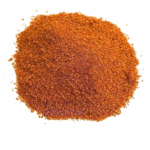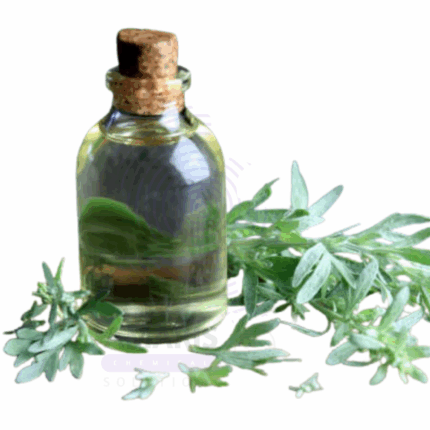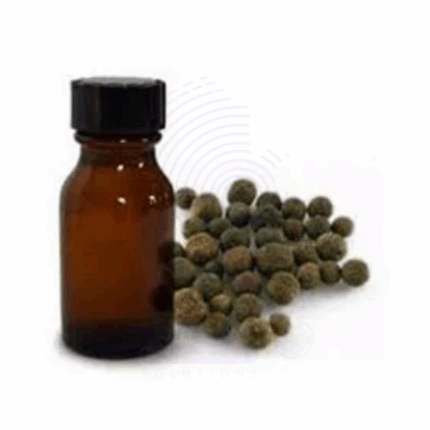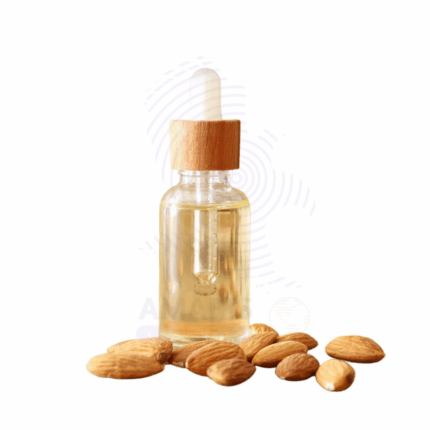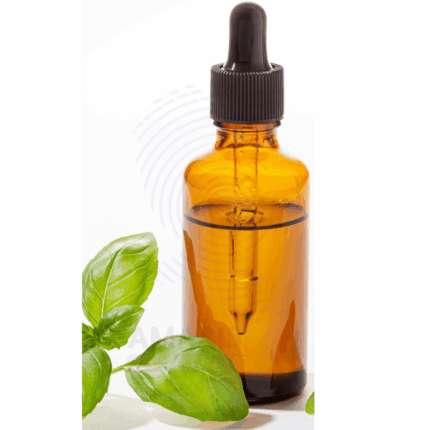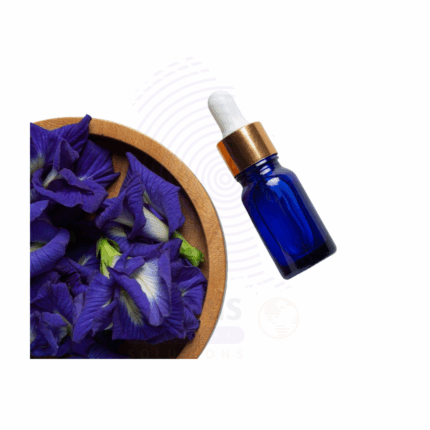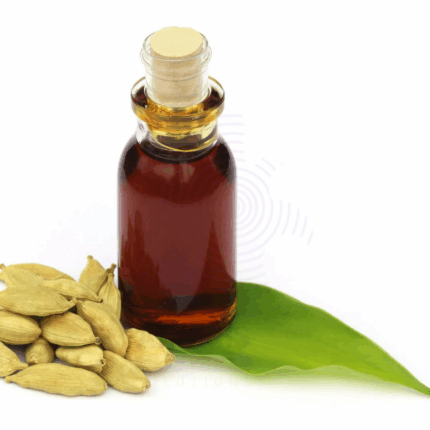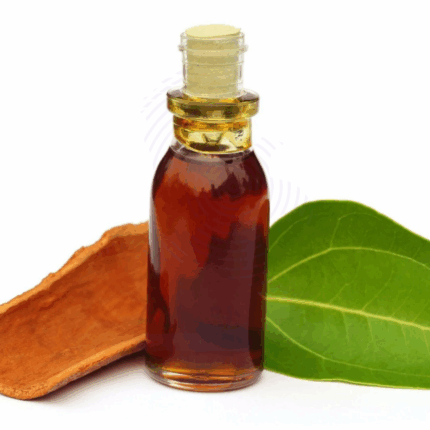Back to products
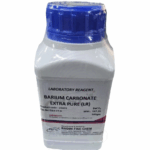

Barium Carbonate Extra Pure
$ 18.00 Original price was: $ 18.00.$ 17.78Current price is: $ 17.78.
Clove Bud Oil
Whatsapp Order
Clove Bud Oil is a potent essential oil obtained through steam distillation of the flower buds of the Syzygium aromaticum (formerly Eugenia caryophyllata) tree. Renowned for its strong, spicy, and warm aroma, it is rich in eugenol — a powerful natural compound with significant antiseptic, analgesic, and antimicrobial properties.
Used historically in dental care, traditional medicine, and perfumery, Clove Bud Oil is now widely applied in cosmetics, oral care, food flavoring, wellness, and natural cleaning products. It is also valued in aromatherapy for its grounding and energizing effects.
Description
Table of Contents
Toggle
Clove Bud Oil
Primary Uses
- Cosmetics and Personal Care
- Used in creams, balms, and ointments for its warming and antimicrobial qualities
- Added to toothpastes and mouthwashes for oral hygiene, gum care, and breath freshening
- Blended into soaps, deodorants, and shampoos for its cleansing and purifying action
- Incorporated into massage oils for soothing muscle tension and fatigue
- Used in formulations for acne-prone and oily skin due to its antiseptic properties
- Pharmaceuticals
- Utilized as a topical analgesic for toothaches and muscle pain
- Commonly included in antiseptic and disinfectant preparations
- Used in throat sprays, lozenges, and syrups for sore throat and cough relief
- Applied in dental anesthetic formulations
- Aromatherapy & Wellness
- Diffused for its stimulating and warming effects on the mind and body
- Included in blends aimed at boosting immunity and respiratory wellness
- Used in meditation and grounding blends to relieve mental fatigue
- Food and Beverage Industry
- Used as a flavoring agent in baked goods, pickles, spice blends, and beverages
- Common in holiday recipes and traditional spice mixes (e.g., pumpkin spice, chai)
- Used in small amounts for food preservation and natural antimicrobial action
- Cleaning and Household Products
- Added to natural surface cleaners for antibacterial and deodorizing power
- Used in air fresheners, fabric sprays, and closet sachets for its warm, spicy scent
Secondary Uses
- Pet Care Products
- Occasionally used in flea-repelling sprays (in safe concentrations and with caution)
- Craft and DIY Products
- Used in homemade candles, potpourri, and essential oil blends
- Popular in DIY mouthwash, salves, and natural deodorants
KEY PRODUCT FEATURES
1. Basic Identification Attributes
- Botanical Name: Syzygium aromaticum / Eugenia caryophyllata
- Common/Trade Name: Clove Bud Oil
- INCI Name: Eugenia Caryophyllus Bud Oil
- CAS Number: 8000-34-8
- HS Code: 3301.29
- Synonyms: Clove Oil, Eugenia Oil, Clove Essential Oil
2. Physical & Chemical Properties
- Physical State: Liquid essential oil
- Color & Odor: Pale yellow to brown; strong, spicy, warm, and woody aroma
- Solubility: Insoluble in water; soluble in alcohol and fixed oils
- Refractive Index: 1.527 – 1.535
- Specific Gravity: 1.035 – 1.070
- Main Components: Eugenol, beta-caryophyllene, eugenyl acetate
3. Safety & Hazard Attributes
- GHS Classification: May cause skin irritation and sensitization
- Toxicity: Low when properly diluted; avoid internal use unless food-grade certified
- Exposure Limits: Refer to Safety Data Sheet (SDS)
- Allergen Information: Contains eugenol, a known allergen
4. Storage & Handling Attributes
- Storage Conditions: Store in a cool, dry, dark area away from direct sunlight
- Container Type: Amber glass bottles or food-safe stainless steel drums
- Shelf Life: 24 to 36 months under optimal storage conditions
- Handling Precautions: Use gloves and avoid direct contact with skin or eyes
5. Regulatory & Compliance Attributes
- Compliant with IFRA standards for safe use in fragrances
- Produced in GMP-compliant manufacturing environments
- Approved for use in cosmetics, food, and pharmaceuticals under regional regulations
6. Environmental & Health Impact
- Biodegradability: Biodegradable under typical environmental conditions
- Ecotoxicity: Low aquatic toxicity in standard dilution
- Bioaccumulation: Not expected to bioaccumulate
SAFETY HANDLING PRECAUTIONS
Safety Handling Precautions
- PPE Required: Gloves, protective eyewear, and mask during handling in bulk
- Handling Guidelines: Avoid vapor inhalation; work in a well-ventilated space
First Aid Measures
- Inhalation: Move to fresh air; seek medical attention if respiratory discomfort occurs
- Skin Contact: Wash with soap and water; discontinue use if irritation appears
- Eye Contact: Rinse thoroughly with water for at least 15 minutes; get medical help
- Ingestion: Do not induce vomiting; seek emergency medical care immediately
Firefighting Measures
- Fire Hazards: Flammable liquid and vapor
- Extinguishing Media: Dry chemical powder, foam, carbon dioxide
- Special Precautions: Use full protective gear and self-contained breathing apparatus
- Hazardous Combustion Products: Carbon monoxide, carbon dioxide, aromatic fumes
Related products
Absinth Oil
Absinth Oil, also known as Wormwood Essential Oil, is a highly aromatic essential oil extracted through steam distillation from the leaves and flowering tops of the Artemisia absinthium plant. Native to Europe and Asia and known historically for its use in absinthe liqueur, this oil features a sharp, bitter, herbaceous aroma with a green and slightly medicinal edge. Rich in thujone, chamazulene, and other bioactive compounds, Absinth Oil is known for its antimicrobial, anti-inflammatory, and digestive-stimulating properties.
While traditionally associated with herbal medicine and ritualistic use, modern applications of Absinth Oil span personal care, pharmaceuticals, and natural pest repellents. Due to its intensity and potential toxicity in high concentrations, it is used in very controlled amounts in fragrance and therapeutic blends. It is valued for its distinctive scent and potent botanical properties, particularly in cosmetics, aromatherapy, and natural cleaning formulations.
Allspice Pimento Berry Oil
Allspice Pimento Berry Oil is a warm, spicy-sweet essential oil steam-distilled from the dried berries of the Pimenta dioica plant, native to the Caribbean and Central America. Known for its rich, clove-like aroma with hints of cinnamon, nutmeg, and pepper, the oil derives its name from its resemblance to a blend of “all spices.” It contains high concentrations of eugenol and other phenolic compounds, lending it powerful antiseptic, analgesic, and aromatic properties.
Widely used in personal care, massage oils, pharmaceutical balms, and perfumery, Allspice Oil is prized for its warming and comforting scent as well as its therapeutic action. It also finds applications in culinary essence formulations, natural insect repellents, and wellness therapies.
Almond Fragrance Oil
Almond Fragrance Oil is a synthetic or naturally blended aromatic compound designed to replicate the warm, sweet, and nutty scent of almonds. It may incorporate notes of marzipan, vanilla, or cherry-like tones to mimic the characteristic aroma of bitter almonds without the presence of cyanogenic compounds. Unlike essential oils, fragrance oils are created for consistent aroma performance and are widely used across cosmetics, personal care, household products, and scented formulations.
This versatile oil delivers a nostalgic, comforting scent often associated with desserts, cleanliness, and warmth. It is valued for its stability in soaps, lotions, candles, and air care products. Almond Fragrance Oil is typically formulated to be allergen-compliant and IFRA-certified for safe use across applications.
Basil sweet oil
Basil Sweet Oil is a high-quality essential oil extracted via steam distillation from the leaves and flowering tops of the Ocimum basilicum plant, known as Sweet Basil. This chemotype is rich in linalool and low in estragole, making it gentler and more suitable for topical use than other basil varieties. With a fresh, sweet, herbaceous, and slightly floral aroma, Basil Sweet Oil is highly valued in cosmetics, personal care, aromatherapy, and natural wellness formulations.
This essential oil is known for its clarifying, uplifting, and antiseptic properties. It supports mental clarity, soothes muscular tension, and offers anti-inflammatory and antimicrobial benefits for skin and scalp. Basil Sweet Oil is especially preferred in formulations targeting sensitive skin and emotional well-being.
Blue Tansy Oil
Blue Tansy Oil is a rare and highly sought-after essential oil obtained via steam distillation of the flowers of Tanacetum annuum, a Moroccan chamomile species. Known for its deep indigo-blue color and distinctive sweet, herbaceous aroma with subtle fruity undertones, this oil is rich in chamazulene — a powerful anti-inflammatory compound that gives it its characteristic blue hue.
Blue Tansy Oil is celebrated in the cosmetic and personal care industry for its calming, soothing, and skin-balancing effects. It is especially beneficial in formulations for sensitive, irritated, or inflamed skin. In aromatherapy, it is valued for promoting relaxation and emotional ease. Its rarity and potency make it a premium choice for high-end skincare, therapeutic blends, and luxury personal care products.
Camphor White Oil
Camphor White Oil is a steam-distilled essential oil obtained from the wood of the Camphor tree (Cinnamomum camphora), primarily from the white fraction, which is rich in 1,8-cineole, camphor, and linalool. This fraction is the most commonly used in aromatherapy and topical preparations due to its potent but relatively balanced composition compared to brown or yellow fractions. The oil has a sharp, penetrating aroma with a cooling, medicinal character.
Traditionally used in topical pain relief, respiratory care, and soothing balms, Camphor White Oil is known for its anti-inflammatory, decongestant, antiseptic, and stimulating effects. It is widely used in cosmetics, personal care, pharmaceuticals, and aromatherapy formulations.
Cardamon Oil
Cardamon Oil is a premium essential oil steam-distilled from the seeds of Elettaria cardamomum, a plant native to India and Sri Lanka and widely cultivated across tropical regions. It carries a warm, spicy-sweet aroma with hints of eucalyptus and citrus, and ranges from colorless to pale yellow in appearance. Known for its digestive, antiseptic, expectorant, and uplifting qualities, it is valued in aromatherapy, perfumery, cosmetics, pharmaceuticals, and food applications.
Rich in compounds like cineole (1,8-cineole), α-terpineol, and linalyl acetate, Cardamom Oil provides both flavor and therapeutic effects, making it a versatile ingredient across several industries.
Cassia Oil
Cassia Oil is a potent essential oil steam-distilled from the bark of Cinnamomum cassia, commonly known as Chinese cinnamon. It carries a strong, spicy, and warm aroma similar to true cinnamon but is more pungent and intense. Its reddish-brown to yellow appearance and high cinnamaldehyde content give it powerful antimicrobial, antifungal, and warming properties. Cassia Oil is used across various industries including food flavoring, pharmaceuticals, cosmetics, aromatherapy, and household products. Due to its strength, it is typically used in diluted concentrations.


 Preservatives(food)
Preservatives(food) Flavor Enhancers
Flavor Enhancers Acidulants
Acidulants Sweeteners
Sweeteners Antioxidants
Antioxidants Colorants(food)
Colorants(food) Nutraceutical Ingredients (food)
Nutraceutical Ingredients (food) Nutrient Supplements
Nutrient Supplements Emulsifiers
Emulsifiers
 Collectors
Collectors Dust Suppressants
Dust Suppressants Explosives and Blasting Agents
Explosives and Blasting Agents Flocculants and Coagulants
Flocculants and Coagulants Frothers
Frothers Leaching Agents
Leaching Agents pH Modifiers
pH Modifiers Precious Metal Extraction Agents
Precious Metal Extraction Agents
 Antioxidants(plastic)
Antioxidants(plastic) Colorants (Pigments, Dyes)
Colorants (Pigments, Dyes) Fillers and Reinforcements
Fillers and Reinforcements Flame Retardants
Flame Retardants Monomers
Monomers Plasticizers
Plasticizers Polymerization Initiators
Polymerization Initiators Stabilizers (UV, Heat)
Stabilizers (UV, Heat)
 Antifoaming Agents
Antifoaming Agents Chelating Agents
Chelating Agents Coagulants and Flocculants
Coagulants and Flocculants Corrosion Inhibitors
Corrosion Inhibitors Disinfectants and Biocides
Disinfectants and Biocides Oxidizing Agents
Oxidizing Agents pH Adjusters
pH Adjusters Scale Inhibitors( water)
Scale Inhibitors( water)
 Antioxidants(cosmetic)
Antioxidants(cosmetic) Emollients
Emollients Fragrances and Essential Oils
Fragrances and Essential Oils Humectants
Humectants Preservatives
Preservatives Surfactants(cosmetic)
Surfactants(cosmetic) Thickeners
Thickeners UV Filters
UV Filters
 Fertilizers
Fertilizers Soil Conditioners
Soil Conditioners Plant Growth Regulators
Plant Growth Regulators Animal Feed Additives
Animal Feed Additives Biostimulants
Biostimulants Pesticides (Herbicides, Insecticides, Fungicides)
Pesticides (Herbicides, Insecticides, Fungicides)
 Active Pharmaceutical Ingredients (APIs)
Active Pharmaceutical Ingredients (APIs) Excipients
Excipients Solvents(pharmaceutical)
Solvents(pharmaceutical) Antibiotics
Antibiotics Antiseptics and Disinfectants
Antiseptics and Disinfectants Vaccine Adjuvants
Vaccine Adjuvants Nutraceutical Ingredients (pharmaceutical)
Nutraceutical Ingredients (pharmaceutical) Analgesics & Antipyretics
Analgesics & Antipyretics
 Analytical Reagents
Analytical Reagents Solvents(lab)
Solvents(lab) Chromatography Chemicals
Chromatography Chemicals Spectroscopy Reagents
Spectroscopy Reagents microbiology-and-cell-culture-reagents
microbiology-and-cell-culture-reagents Molecular Biology Reagents
Molecular Biology Reagents Biochemical Reagents
Biochemical Reagents Inorganic and Organic Standards
Inorganic and Organic Standards Laboratory Safety Chemicals
Laboratory Safety Chemicals Specialty Laboratory Chemicals(Special Laboratory Equipment)
Specialty Laboratory Chemicals(Special Laboratory Equipment)
 Demulsifiers
Demulsifiers Hydraulic Fracturing Fluids
Hydraulic Fracturing Fluids Scale Inhibitors(oil)
Scale Inhibitors(oil) Surfactants(oil)
Surfactants(oil) Drilling Fluids
Drilling Fluids
 Dyes and Pigments
Dyes and Pigments Bleaching Agents
Bleaching Agents Softening Agents
Softening Agents Finishing Agents
Finishing Agents Antistatic Agents
Antistatic Agents
 Admixtures
Admixtures Waterproofing Agents
Waterproofing Agents Sealants and Adhesives
Sealants and Adhesives Curing Compounds
Curing Compounds Concrete Repair Chemicals
Concrete Repair Chemicals Anti-Corrosion Coatings
Anti-Corrosion Coatings
 Surfactants(cleaning)
Surfactants(cleaning) Builders
Builders Enzymes
Enzymes Solvents (Cleaning)
Solvents (Cleaning) Fragrances
Fragrances
 Electronic Chemicals
Electronic Chemicals Catalysts
Catalysts Lubricants
Lubricants Photographic Chemicals
Photographic Chemicals Refrigerants
Refrigerants Automotive chemicals
Automotive chemicals Pyrotechnic Chemicals
Pyrotechnic Chemicals
 Biodegradable Surfactants
Biodegradable Surfactants Bio-based Solvents
Bio-based Solvents Renewable Polymers
Renewable Polymers Carbon Capture Chemicals
Carbon Capture Chemicals Wastewater Treatment Chemicals
Wastewater Treatment Chemicals
 Pigments
Pigments Solvents(paint)
Solvents(paint) Specialty Coatings
Specialty Coatings Binders/Resins
Binders/Resins Additives
Additives Driers
Driers Anti-Corrosion Agents
Anti-Corrosion Agents Functional Coatings
Functional Coatings Application-Specific Coatings
Application-Specific Coatings
 Fresh Herbs
Fresh Herbs Ground Spices
Ground Spices Whole Spices
Whole Spices Spice Blends
Spice Blends Dried Herbs
Dried Herbs
 Leavening Agents
Leavening Agents Dough Conditioners
Dough Conditioners Flour Treatments
Flour Treatments Fat Replacers
Fat Replacers Decoratives
Decoratives Preservatives(baking)
Preservatives(baking)
 Plasticizers & Softeners
Plasticizers & Softeners Reinforcing Agents
Reinforcing Agents Adhesion Promoters
Adhesion Promoters Vulcanizing Agents
Vulcanizing Agents Antidegradants
Antidegradants Blowing Agents
Blowing Agents Fillers & Extenders
Fillers & Extenders Accelerators & Retarders
Accelerators & Retarders
